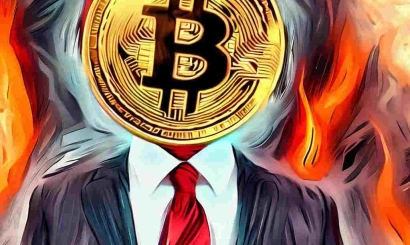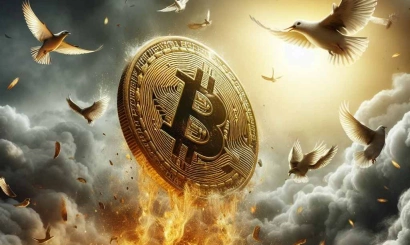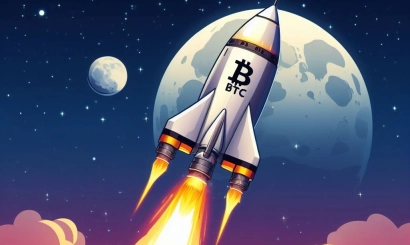The Future of Cryptocurrencies: What are the Benefits of Decentralized Finance
Over the past year, several major cryptocurrency companies have suffered, and the crisis has hit the banking industry as well. We tell you what problems the DeFi sphere solves, and how people can access it without fear of restrictions
Over the past year, several major cryptocurrencies have suffered, and the banking industry is in crisis. We tell you what problems the DeFi sphere is solving, and how people can access it without fear of restrictions
Cryptocurrencies have returned to growth in 2023. Since the beginning of January, bitcoin price soared by 70% and updated the local maximum above $28 thousand. Following bitcoin's rise in price and the largest by capitalization altcoins. At the same time, the banking system is suffering: everything began with the bankruptcy of three banks in the United States (Sillicon Valley Bank (SVB), Silvergate and Signature Bank), then the problems of Swiss Credit Suisse, which was saved by the takeover of UBS. However, the situation continues to be uncertain, and more and more investors see digital currencies as a hedge.
For cryptocurrencies now also plays the fact that the U.S. authorities are trying to reduce tensions in the banking sector, to take additional measures. And, as we remember from recent history, low Fed rates and dovish U.S. policy are the way for risky assets to hit record highs. It was during quantitative easing (QE) that bitcoin quotes were at a peak of $69,000. And after the change in QE, the crypto market began to correct.
It is important to understand that the high dependence of digital currency quotes on U.S. policy is a serious factor, but not a determining one. Last year, several major cryptocurrency companies, including trading venues and hedge funds, went bankrupt. The most famous example is the FTX exchange, as well as the Terra project.
The main problem of both the banking sector and the largest bankrupt crypto-projects is centralization. In order to solve it, financial services in the form of services and applications - decentralized finance (DeFi) - were created on blockchain. They are an alternative to the banking sector (which has been particularly vulnerable lately) and a replacement for traditional financial system technologies.
DeFi is finance without intermediaries. A smart contract is a program that does what the parties have agreed to do
Just as importantly, when working with DeFi-service, the user is always in control of all of his funds. Customers of centralized platforms (whether banks or exchanges) have to trust them with their money, to give it for safekeeping. In the case of decentralized finance the client connects his own wallet and conducts all transactions directly from it.
Until recently, users from Russia could work with foreign DeFi projects without problems, but now the situation has changed. A significant number of platforms registered in the West have restrictions with regard to Russians. For example, the service may not allow users due to their IP address or prevent them from working in other ways.
One option for solving this problem could be the use of domestic services. For example, the Exnode project launched DeFi for decentralized investments. Users are offered a liquidity market with a low entry threshold and minimal commissions. All transactions will be recorded in blockchain, as they are built on the logic of smart contracts.
The DeFi market is just beginning to develop. Experts estimate that only 7 million people have used decentralized finance protocols so far. The potential growth of this sphere is estimated to be at least 50 times in the next few years.
A graph showing the amount of funds held in all DeFi-platforms (in billions of dollars)
Exnode supports the major and most popular blockchains: Ethereum, Polygon, BNB Chain, Optimism, Arbitrum, Fantom, Avalanche. In these networks on the platform there are more than 70 portfolios and investment strategies with different levels of risk and for any level of deposit. When choosing a network, it is important to consider the volume of planned investments. With a large volume, it is recommended to use the Ethereum network, it has the most liquidity, but high commissions. In Ethereum and BNB Chain networks, the recommended entry amount is from $2.5 thousand, in other networks $100 is enough.
In conditions of banking crisis and collapse of centralized giants of crypto-industry, probably, it makes sense to pay attention to the sphere of decentralized finance DeFi. This is a promising industry that is just beginning to develop, and with the right approach, allows investors to work with their assets in a transparent and relatively safe way.
- Investment idea: Betting on the growth of tokens of Layer 2 projects
- Binance's share of the crypto market decreased by 16% in the first quarter of 2023
- How the field of stacking will change after the Ethereum update. Experts' opinions
- Ethereum's rise in price has brought a newcomer to the top 10 cryptocurrencies
- BofA calls the tokenization of traditional assets key to digital adoption
- Binance has withdrawn from circulation BNB tokens by almost $620 million
- Blockchain project Chia applied to the SEC for an IPO






